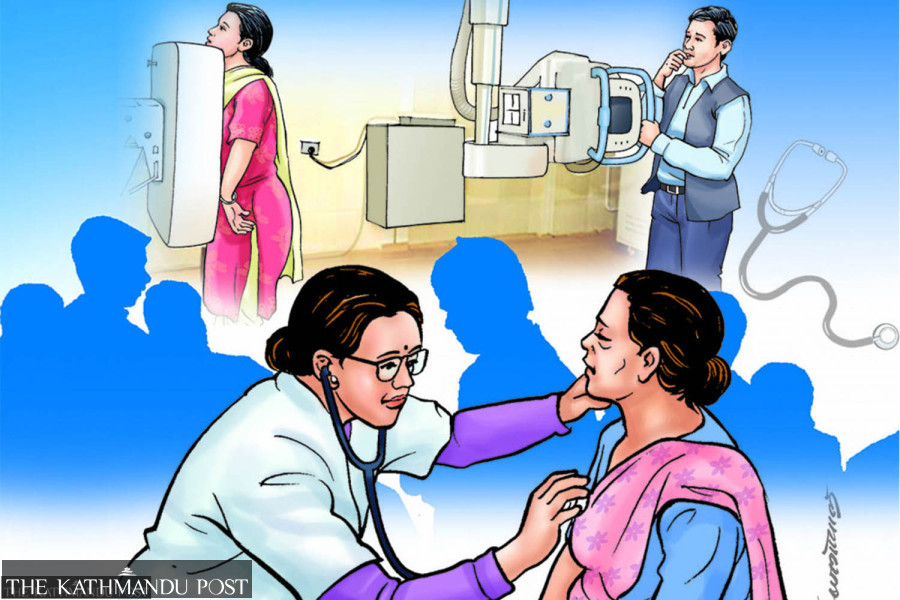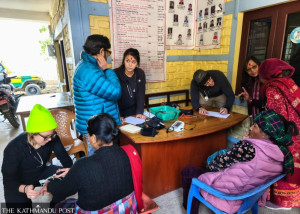Health
Doctors, health workers get NCD screening training
Patients seeking treatment at state-run local health facilities in Kathmandu will be screened for non-communicable diseases.
Post Report
At least 50 health workers including medical officers, health assistants and paramedics serving in health facilities of Kathmandu district have been trained to screen patients suffering from non-communicable diseases.
The Kathmandu Health Office provided the health workers with a four-day training. The trained health workers will screen major non-communicable diseases such as high blood pressure, heart disease, cancer, diabetes, and mental health problems, among others, in patients seeking healthcare at local health facilities of the district, according to officials at the Health Office Kathmandu.
“Patients seeking healthcare services at the local units of Kathmandu will be screened for non-communicable diseases,” said Dr Arjun Sapkota, chief of the Health Office, Kathmandu. “Health workers will prescribe medicines for non-communicable diseases, counsel patients and refer them to a tertiary care centre if the problems are complicated.”
Non-communicable diseases—such as heart disease, stroke, cancer, diabetes, and chronic lung disease—have emerged as major public health problems of late, accounting for 71 percent of deaths in the country.
A 2019 study by the Nepal Health Research Council on the prevalence of noncommunicable diseases, which primarily focused on behavioural risk factors—tobacco and alcohol consumption, biological risk factors, raised blood pressure, overweight, obesity, abnormal lipid prevalence, coronary artery disease, chronic obstructive pulmonary disease and diabetes—found non-communicable diseases have emerged as a major killer.
The study showed that the leading risk factor of death in 2019 was smoking, whose attributable death was 17.7 percent, followed by high systolic blood pressure at 12.3 percent, household air pollution at 11.2 percent, ambient air pollution 9.3 percent, diabetes 8 percent, high cholesterol, and kidney dysfunction, among others.
The Ministry of Health and Population has included medicines for non-communicable diseases in the list of 98 free essential medicines, which it provides free of cost from state-run health facilities.
The free medicines on the list include medicines for some non-communicable diseases—mental health, cardiovascular, respiratory illness and diabetes, among others.
Officials say that even if the burden of non-communicable diseases surpassed communicable diseases years ago and medicines for some ailments are provided free of cost, many people do not know their disease conditions due to lack of screening at health facilities.
The Health Ministry in the past had decided to provide free screening for certain non-communicable diseases to people above 40 years old. However, such services have not started in many health facilities.
“Trained health workers will screen the patients visiting health facilities they serve at,” said Sapkota. “We hope that patients suffering from non-communicable diseases will be diagnosed on time, which will ultimately help in lessening the burden of non-communicable diseases.”
Doctors say most people do not undergo testing unless it is an emergency and also do not know if they are suffering from a serious ailment. They say that a lot of lives will be saved if testing of non-communicable diseases is made free.
Public health experts say the increase in the burden of non-communicable diseases is a global phenomenon but developing countries like Nepal have been facing a double burden.




 9.12°C Kathmandu
9.12°C Kathmandu













